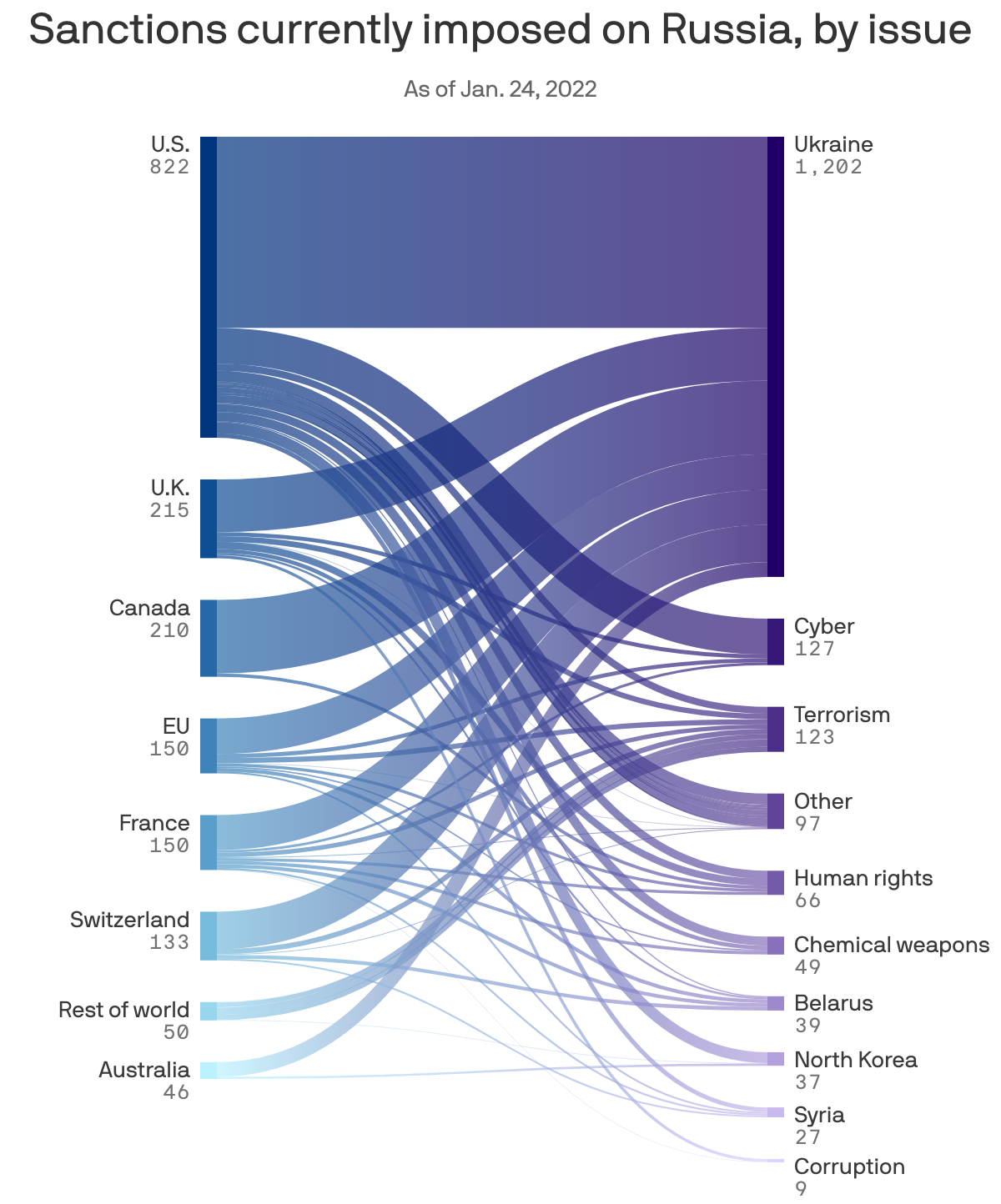
Note: “Rest of world” includes Argentina, Indonesia, Latvia, the Netherlands, New Zealand and the United Nations. Data: Castellum.AI and Atlantic Council’s Economic Statecraft Initiative; Chart: Jacque Schrag/Axios
The vast majority of global sanctions against Russia stem from its invasion of Crimea in 2014 — a violation of Ukraine’s territorial integrity that Moscow is now threatening to repeat on a far larger scale in the remainder of the country.
Why it matters: Top Biden officials openly admit costs imposed on Russia since 2014 have failed to deter President Vladimir Putin. That’s why the U.S. and its allies are preparing sanctions that would “start at the top of the escalation ladder and stay there.”
Stay on top of the latest market trends and economic insights with Axios Markets. Subscribe for free
Zoom in: Data aggregated by Castellum.AI and the Atlantic Council’s Economic Statecraft Initiative reflect the many shades of malign Russian behavior that have triggered sanctions from 11 countries, the European Union and the United Nations.
-
The Global Sanctions Dashboard shows the U.S. maintains 822 sanctions on Russian entities and individuals, including for the destabilization of Ukraine, use of chemical weapons and support for dictators in Syria, Venezuela and Belarus.
-
Within the past year, the Biden administration has imposed sanctions on Russia for the poisoning of opposition leader Alexei Navalny, as well as interference in the 2020 election.
-
Only a sliver of total global sanctions on Russia is related to corruption, but calls to target oligarchs who hide their wealth in the West have grown significantly because of the current crisis.
What to watch: Unlike in 2014, the U.S. and its allies are preparing options to potentially devastate large swathes of the Russian economy if Putin moves forward with a further invasion of Ukraine.
-
Options include sanctioning the largest Russian financial institutions, cutting Russia from the SWIFT international payments system, imposing export controls on key technologies and even sanctioning Putin himself.
-
A bipartisan group in the Senate is closing in on a deal on what Sen. Robert Menendez (D-N.J.) has dubbed “the mother of all sanctions” bill, but disagreements remain about whether to impose some costs now, before Russia invades.
Between the lines: Russia has taken steps over the past eight years to “sanction-proof” its economy, including by dramatically reducing its use of dollars to blunt the West’s leverage.
-
Europe also remains heavily reliant on Russian natural gas, making it difficult to sanction the energy sector without causing price shocks.
-
That’s why the U.S. has continued to pursue a dual-track approach of “diplomacy and deterrence”: Sanctions at the scale currently under consideration could cause collateral damage across the entire global economy.
Like this article? Get more from Axios and subscribe to Axios Markets for free.




